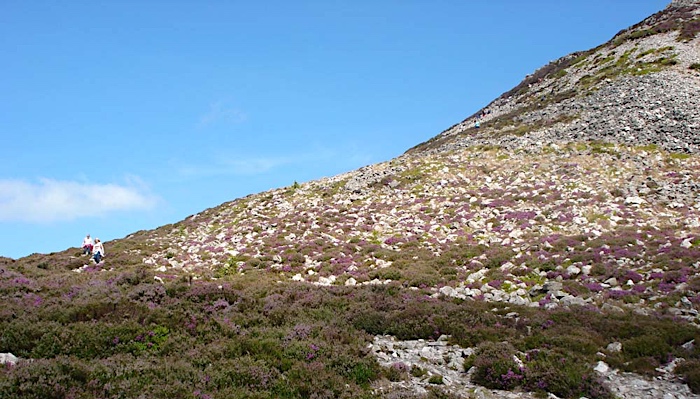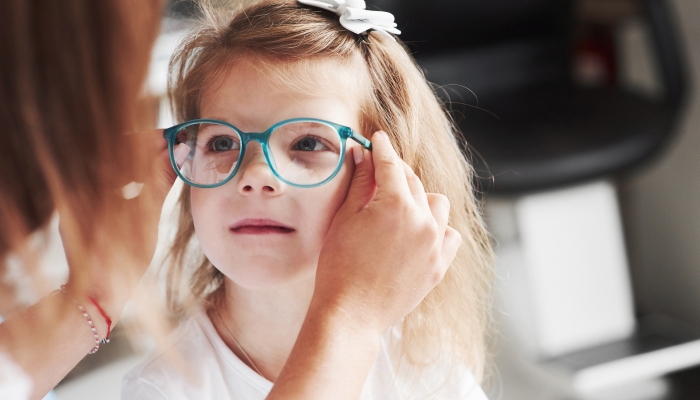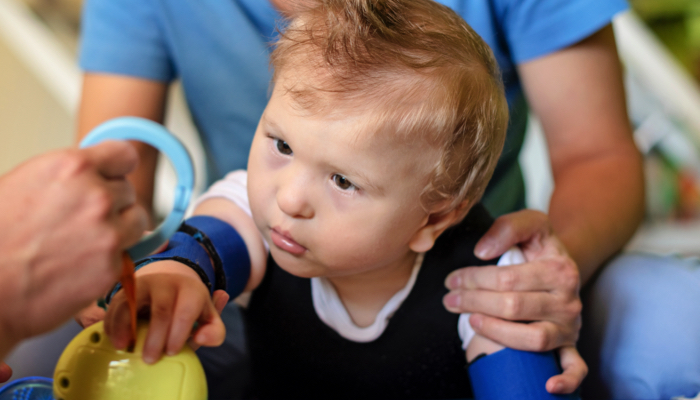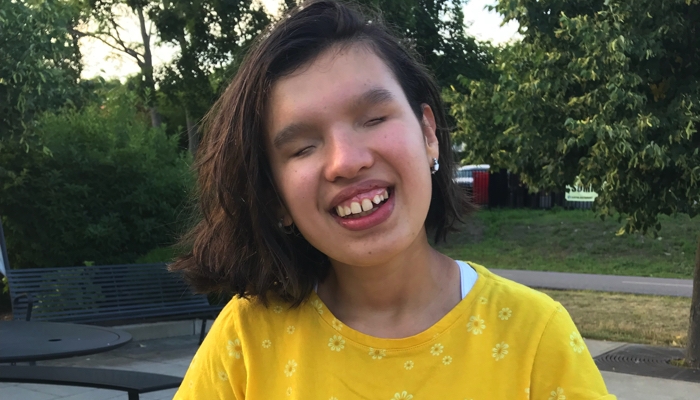Thoughts on Growing Up Blind

By June Bowden
“This may not be what you are looking for.”
That could have been the opening line, spoken by the midwife or nurse who delivered me fifty-six years ago.
I am not a parent of a blind baby, but instead I am a blind adult.
Born ten weeks premature, just like thousands of others in the UK and yet more people world wide, I was not expected to live… but I did.
At eighteen months of age I was already talking and unkind people tell me I haven’t stopped since. I had a foresighted grandmother who talked to me non-stop, describing my surroundings and the visual world that I was a part of and yet apart from. I walked at two-and-a-half.
Despite my having driven a car; ridden a horse; rowed a boat (as opposed to rowing with people and making myself unpopular); climbed a mountain in Southern Ireland and lots more including touring a ship on which I embarked on a cruise with my gran and despite having flown three times in my life; my understanding of the visual world is fragmentary. I do not dream visually. I have no concept of clouds in the sky or what I look like. Learning my way in a new area is not impossible, but is difficult even with a guide dog.
Sometimes I think back on some of the challenges I’ve faced. I know I rocked as a child and poked my eyes, but cannot tell you why. Experts say that it is a need for comfort, stimuli and movement which causes blind children to rock.
I can answer a very puzzling question as to why blind children are unable to sleep. I took part in sleep research conducted by Doctor Stephen Lockley of Surrey University, now practicing at the Harvard Medical School in Massachusetts.
It doesn’t have anything to do with factually not knowing what time of day it is. I know where I am in space and time and it also does not have to do with eating dead on the dot at certain times so you can keep track of the day’s progress. What it does have to do with is the irregular release of the sleep hormone melatonin which is released in response to darkness by those who see.
In blind children it is released irregularly as it is in adults with no light perception. Dawn sets the body clock each day so when I told my friend that I couldn’t sleep, but knew I was better in summer months when days are lighter and longer, she lent me her light box. Now the problem which I have had for a quarter of a century has all but gone. The light is absorbed through the skin so obviously totally blind people are light dependent too.
I may not live anywhere near as full a life now as I have in the past, but I am making desperate attempts to get into radio. On several occasions I have been interviewed by my local station BBC Surrey, by Sarah Gorrell who does the afternoon show (also online). She said in her opinion I’d be great on radio and she advised me to get in touch with hospital radio to gain some experience, but it’s been a tough road.
I have battled to get what and where I want and the battle isn’t over yet as I am anxious to get into radio, know that I could do it, and have been told so by professional people working within it. I am still pursuing this dream despite many roadblocks. I want to emphasize this because I want people to know that life is possible on one’s own terms, but that it doesn’t fall into your lap or come wrapped in silk from Santa Claus.
You may have to work twice as hard to get half as far, but neither is life over just because one is blind. It is altered very significantly and the playing field is not level, but you don’t have to stay in the gutter at the bottom of the valley. You must be determined to be dogged in pursuit of the fulfillment of your potential. That’s the greatest lesson I learned from my grandmother who did not and would not accept that I was a no-hoper.
My family got no help with me, only my grandmother’s common sense saw me through as she raised me. She had been a nurse and was very practical, teaching me to walk, helping me overcome my fear of going into bath water, and explaining everything about my surroundings. She talked with me constantly and played with me. In fact she devoted her life to me and gave me as good an understanding of the world as anyone who has not been able to see from a very early age can have.
My grandmother said it was difficult, but worth it.
Related Posts

Eye Conditions and Syndromes, Support, Visual Impairment
Coping with a Diagnosis: Emotional Support for Families with Visually Impaired Children
Families with emotional support are more resilient. Learn how to establish emotional support with peers, professionals, and the community to help your family thrive.

Special Needs, Visual Impairment
Why Early Intervention Is Critical for Blind Children
Children diagnosed with visual processing disorders, low vision, or blindness need specialized treatment. Early intervention programs can help.

Eye Conditions and Syndromes, Visual Impairment
Anophthalmia: Navigating the Path from Diagnosis to Adaptation for Parents and Their Children
Anophthalmia is a rare disorder that results in childhood blindness. Early intervention services are important to help your baby maximize their potential.